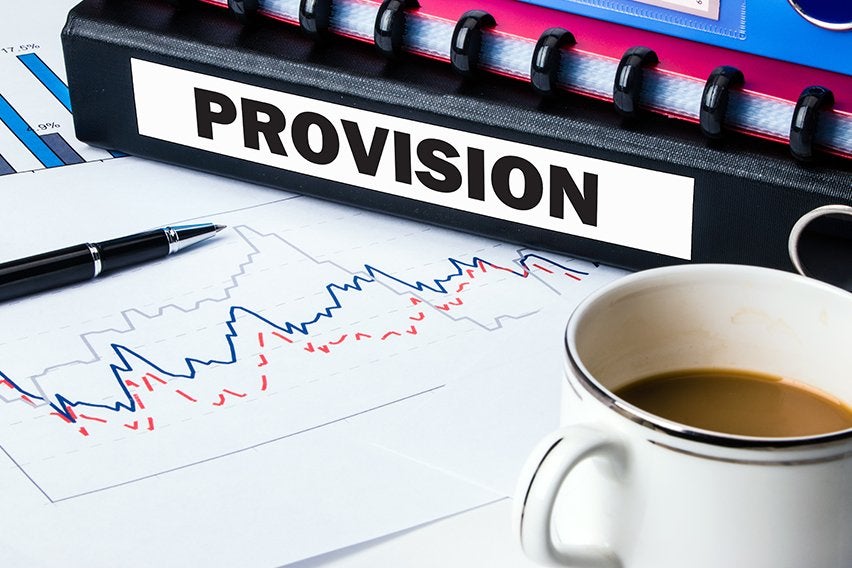What Are Provisions in Accounting?

Provisions in Accounting are an amount set aside to cover a probable future expense, or reduction in the value of an asset. Examples of provisions include accruals, asset impairments, bad debts, depreciation, doubtful debts, guarantees (product warranties), income taxes, inventory obsolescence, pension, restructuring liabilities and sales allowances.
Often provision amounts need to be estimated. In financial reporting, provisions are recorded as a current liability on the balance sheet and then matched to the appropriate expense account on the income statement.
Here’s What We’ll Cover:

Why Are Provisions Created?
Provisions are important because they account for certain company expenses, and payments for them, in the same year. This makes the company’s financial statements more accurate.
Provisions are not a form of savings. Because the expense is ‘probable’, the amount set aside is expected to be spent.
Is a Provision a Reserve?
A provision is not a reserve.
A reserve, or reserve fund, is money allocated from profit for a specific purpose.
A provision is funds allocated for a specific expense.
A reserve fund is typically highly liquid, so that funds can be accessed immediately, like from a savings account. An example of an entity using a reserve fund would be a Homeowners’ Association. They could have a reserve fund for unscheduled repairs. They don’t know exactly what these repairs will be for, or the precise costs associated with them, but they do know that repairs will be required at some point. The dues the homeowners pay will keep the fund filled up, and interest will be earned.
An example of a provision could be a car company setting aside money for warranty repairs for the last quarter of the year. The provisional amount will be estimated based on past warranty expenses, related to car sales. But that’s all the money will be used for – warranties.
Examples of Provisions
Examples of provisions include:
- Accruals
- Asset impairments
- Bad debts
- Depreciation
- Doubtful debts
- Guarantees (product warranties)
- Income taxes
- Inventory obsolescence
- Pension
- Restructuring Liabilities
- Sales allowances

What Are Tax Provisions?
Tax provisions are an amount set aside specifically to pay a company’s income taxes. In order to calculate the tax amount owing, a business needs to adjust its gross income by the amount of tax deductions it is claiming.
Tax deductions can include meals, interest expenses, depreciation allowances, holiday parties and more. For more on small business tax deductions, check out this article on Business Deductions: Trump Tax Plan Explained.
Once the calculations are done, the total tax amount the company determines it owes can be allocated for on its books in a provision, known as a “tax provision”.
RELATED ARTICLES

 Is Inventory a Current Asset?
Is Inventory a Current Asset? Operating Expenses (OpEx): Definition, Formula, and Example
Operating Expenses (OpEx): Definition, Formula, and Example What is the Difference Between Financial and Managerial Accounting?
What is the Difference Between Financial and Managerial Accounting? What is the Direct Write Off Method?
What is the Direct Write Off Method? How to Calculate Depreciation
How to Calculate Depreciation What is a Good Profit Margin?
What is a Good Profit Margin?